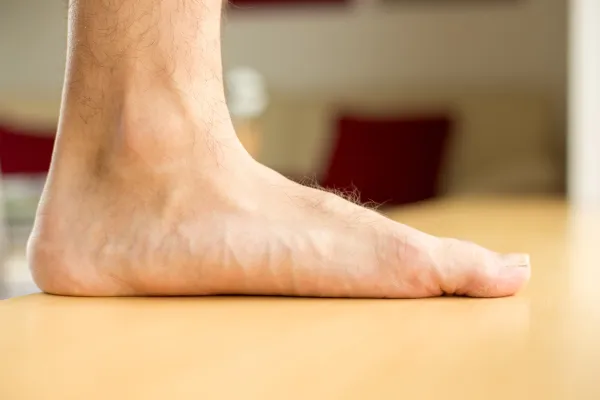Reflect Flat Foot With One of Three Specific Diagnoses

Don’t miss these Excludes1 and Excludes2 notes.
When a patient suffers from flat foot (also called pes planus or colloquially known as fallen arches), this means that the arch, or medial border, of his foot collapses, with the entire sole of the foot coming into complete or near-complete contact with the ground.
In ICD-10-CM, you should report this condition with one of three codes:
ICD-10 Change: While you used to have one ICD-9 option for flat foot, ICD-10 gives you three more based on anatomical site (right foot, left foot, and unspecified).
Documentation: Your physician most likely already documents the side of the flat foot, so now have you a way of specifying this with a diagnosis code. Although you have a code for unspecified, you should always code to the highest specificity.
Coder tips: Underneath the M21 (Other acquired deformities of limbs), you’ll find the following notations:
Underneath the M21.4 (Flat foot [pes planus] [acquired]) category, you’ll find an Excludes1 note that prevents you from reporting these conditions with congenital pes planus (Q66.5).




